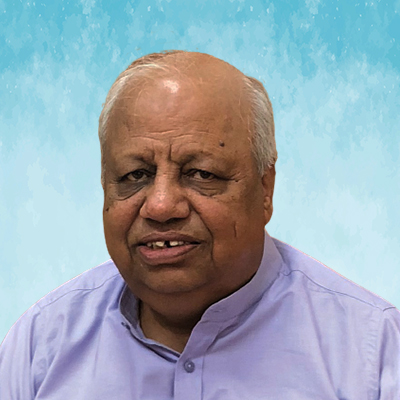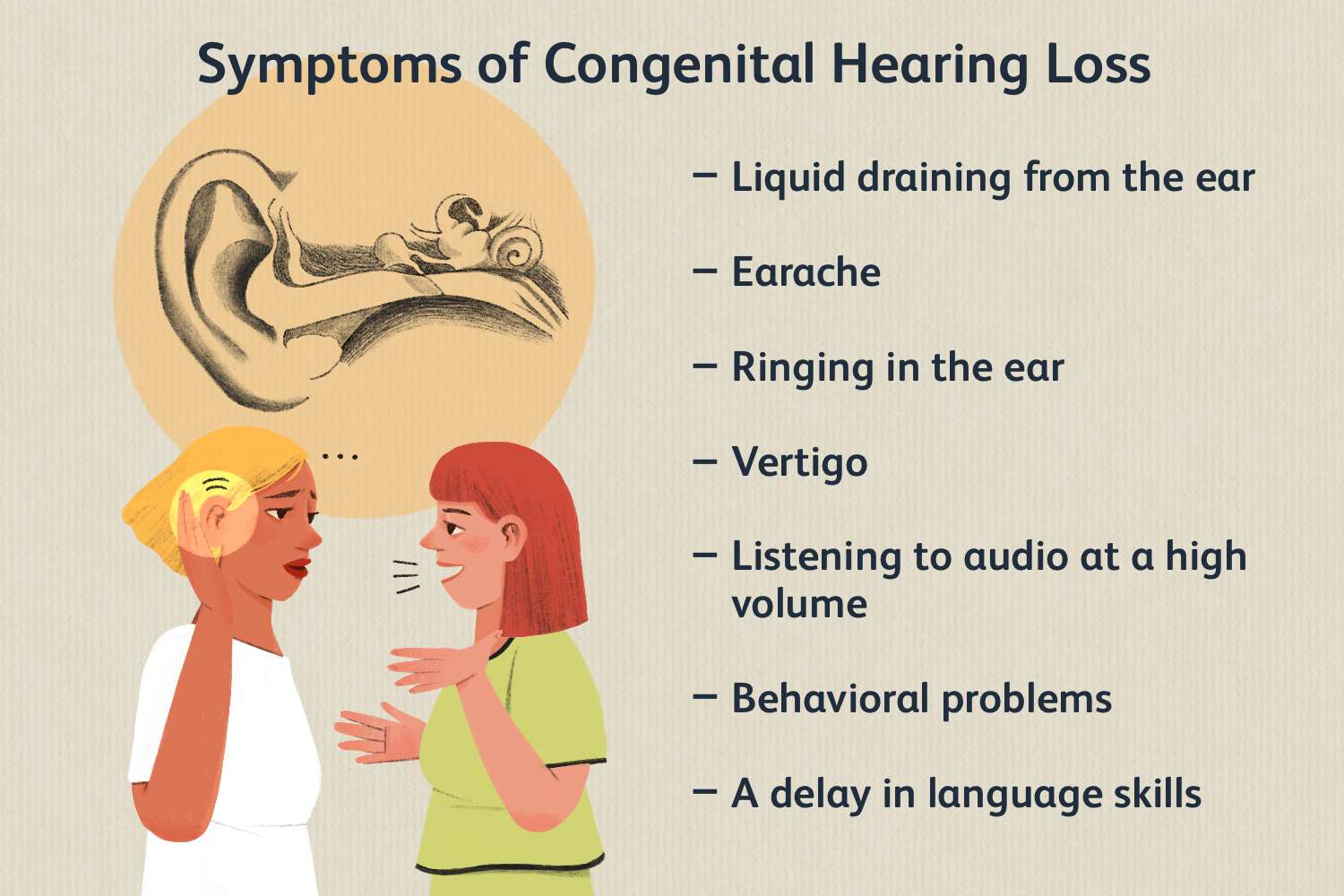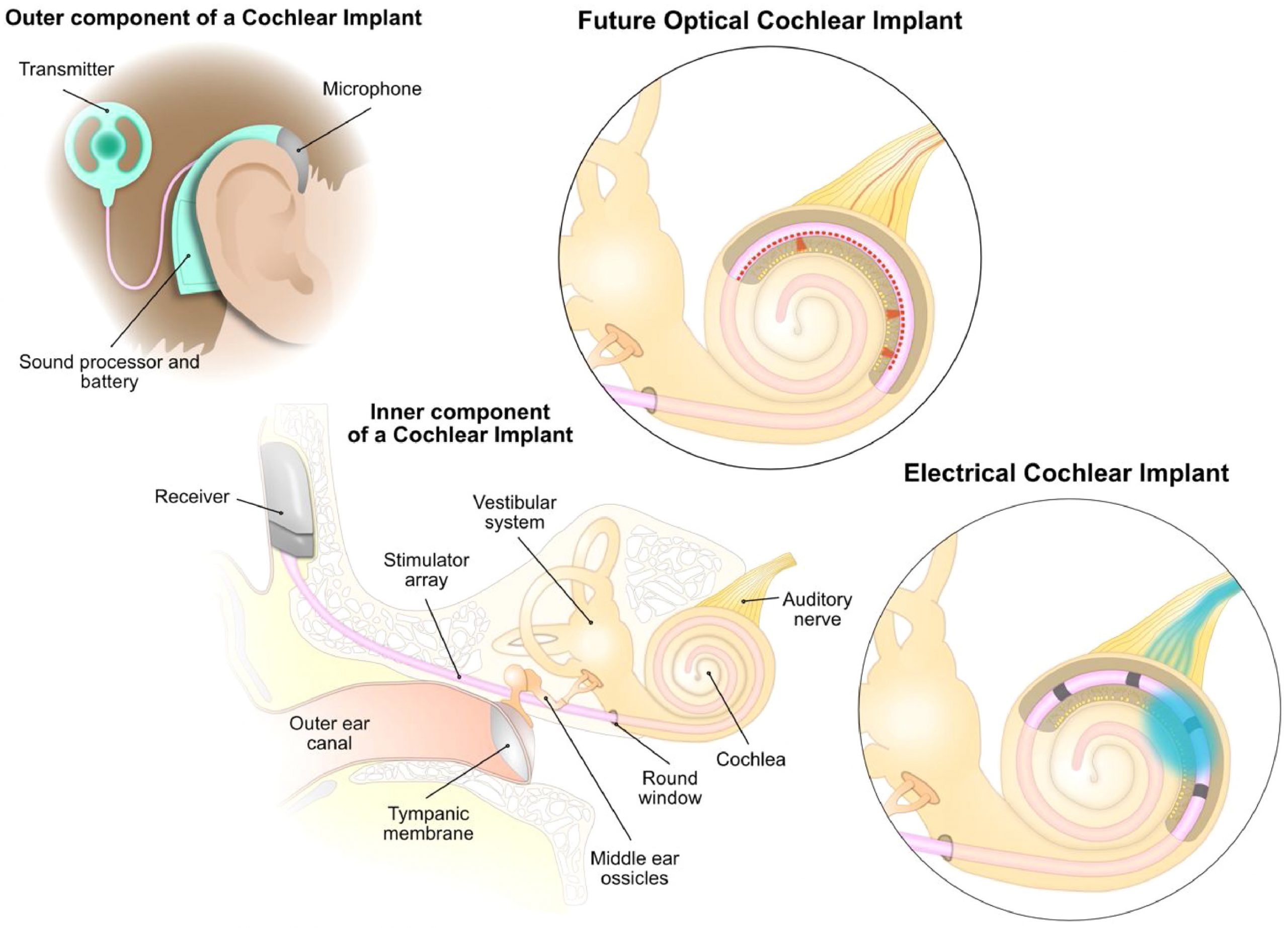I hear, therefore, I am
 Hearing is vital to human existence as it helps us to communicate with each other. Cochlear Implant has emerged as a ray of hope for people suffering from hearing loss…..
Hearing is vital to human existence as it helps us to communicate with each other. Cochlear Implant has emerged as a ray of hope for people suffering from hearing loss…..
By Dr A K Agarwal
Ability to hear sounds is closely linked to mental development. The development of vocal skills is dependent on normal hearing. Of late, the problem of hearing loss is on the increase worldwide.
Hearing loss can be present at birth which is called as congenital hearing loss or it can develop after birth when it is called acquired hearing loss. The hearing loss occurring after the speech and language development is termed as post-lingual hearing loss. Having hearing loss since birth and not developing speech and language is termed as prelingual deafness.
There are many causes of congenital deafness. These are hereditary causes which may sometimes be associated with syndromes like Down’s syndrome, Waardenburg Syndrome, Usher, Alport etc. Hearing loss can also occur due to maternal infections, complications during childbirth and pregnancy or because of certain drugs taken during pregnancy. It has been observed that mutation in gene leading to synthesis of a protein connexin 26 is responsible for non-syndromic deafness. The incidence of congenital deafness in India is around 1-3 per thousand births.
It is essential to recognize any hearing loss in a child as early as possible since the speech, hearing and overall mental development depends on normal hearing abilities of the child. Parents have a very important role in early identification of such infants. Usually, the child moves his head or blinks in response to loud sound. Also the child may startle or stop moving his limbs when there is a loud sound. In case of suspicion, the hearing status of the child must be objectively assessed at the earliest.
 The government of India is trying to make the universal screening of every new born child mandatory before discharge from the medical facility. In case of institutional deliveries, child’s hearing status is being routinely screened using otoacoustic emissions (OAE) which can be easily done with a portable hand held machine. Presence of OAE indicates normal hearing but absence of OAE does not mean that the child is deaf and it needs to be confirmed by a more specific objective test.
The government of India is trying to make the universal screening of every new born child mandatory before discharge from the medical facility. In case of institutional deliveries, child’s hearing status is being routinely screened using otoacoustic emissions (OAE) which can be easily done with a portable hand held machine. Presence of OAE indicates normal hearing but absence of OAE does not mean that the child is deaf and it needs to be confirmed by a more specific objective test.
The brain’s ability to learn new things is slowly lost by the age of 5 years. When a child is rehabilitated for hearing after the age of five years, the normal speech may not develop as the brain has lost the ability to learn speech and language. That is why the deaf child must be diagnosed and rehabilitated at the earliest. Our aim should be to diagnose deafness and rehabilitate the child in the first year of life.
 Rehabilitation depends on the degree of hearing loss. A child who is having mild to moderate hearing loss can be provided with a hearing aid. Hearing aid will amplify the sound above the hearing threshold of the child and he will be able to listen. Children with severe to profound deafness will require a cochlear implant though all such children must undergo a hearing aid trial before cochlear implantation.
Rehabilitation depends on the degree of hearing loss. A child who is having mild to moderate hearing loss can be provided with a hearing aid. Hearing aid will amplify the sound above the hearing threshold of the child and he will be able to listen. Children with severe to profound deafness will require a cochlear implant though all such children must undergo a hearing aid trial before cochlear implantation.
Cochlear implant
Cochlear implant is a device which by-passes the inner ear and directly stimulates the cochlear nerve which is responsible for carrying the sound coded electrical signals to the brain. The device has an internal part which is surgically implanted inside the ear and comprises of an electrode and a receiver magnet. The electrodes are inserted in the cochlea where they come in direct contact with the nerve endings of the cochlear nerve. The external part has a receiver, speech processor and transmitter. The receiver has a microphone which picks up the sounds from the external environment and sends it to the speech processor. The speech processor is like a computer which analyzes and digitizes the sound and sends them to a transmitter which stimulates the implanted receiver magnet just under the skin by electromagnetic induction.
(The author is Former Dean and ENT Specialist, Maulana Azad Medical College, New Delhi and Presently, Medical Advisor, Clinical Research, Apollo Hospital, New Delhi)

